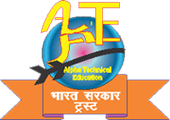DETAILED SYLLABUS FOR PAPER-I & II
Ph.D. COURSEWORK UNDER FACULTY of ENGINEERING
Objectives
- · Learn to focus on a research problem using scientific methods
- · Learn methods to devise and design an experimentation set-up
- · Learn basic instrumentation and data collection methods
- · Learn parameter estimation and related modelling methods
Unit 1: Research Problem
- Meaning of research problem, Sources of research problem, Criteria / Characteristics of a
good research problem, Errors in selecting a research problem, Scope and objectives of
research problem.
Unit 2: Basic instrumentation
- Instrumentation schemes, Static and dynamic characteristics of instruments used in
experimental set up, Performance under flow or motion conditions, Data collection using
a digital computer system, Linear scaling for receiver and fidelity of instrument, Role of
DSP is collected data contains noise.
Unit 3: Applied statistics
- Regression analysis, Parameter estimation, Multivariate statistics, Principal component
analysis, Moments and response curve methods, State vector machines and uncertainty
analysis.
Unit 4: Modelling and prediction of performance
- Setting up a computing model to predict performance of experimental system, Multiscale
modelling and verifying performance of process system, Nonlinear analysis of
system and asymptotic analysis, Verifying if assumptions hold true for a given apparatus
setup, Plotting family of performance curves to study trends and tendencies, Sensitivity
theory and applications.
Unit 5: Developing a Research Proposal
- Format of research proposal, Individual research proposal, Institutional proposal
Proposal of a student – a presentation and assessment by a review committee consisting
of Guide and external expert only. Other faculty members may attend and give
suggestions relevant to topic of research.
[SEMINAR]
Unit 1: Formulating Problem Statement
Overview of research process:
- Formulating the Research Problem, Extensive Literature
Review, Developing the objectives, preparing the Research Design including Sample
Design, Collecting the Data, Analysis of Data, Generalization and Interpretation,
preparation of the Report or Presentation of Results-Formal write-ups of conclusions
reached.
Problem statement:
- Conditions and steps in selecting a research problem, Understanding
the Key research area of interest, How to get new ideas (Criticizing a paper), Finding a
good problem: Top-down and Bottom-up approach, Creative thinking techniques,
Coming up with a problem statement
Defining objectives:
- How to find objectives, characteristics of objectives
Unit 2: Literature survey
Overview :
- What is literature survey, Functions of literature survey, maintaining a
notebook, developing a Bibliography
Searching for publications:
- Publication databases, search engines and patent databases,
Find some/all of the references for a given paper, including those that are not on the web
Online tools – google, CiteSeer, ACM Digital Library, IEEE, The on-line Computer
Science bibliography, Survey papers, Finding material not on the web, Searching patents
Unit 3: How to study a scientific paper
Summarizing paper:
- Reading abstracts and finding ideas, conclusion, Advantages of
their approach, the drawbacks of the papers (What is lacking – can be found in the
sections such as future work) Generalize results from a research paper to related research
problems
Comparing the approach
- Identify weaknesses and strengths in recent research articles in
the subject
Unit 3: How to study a scientific paper
How to write scientific paper:
- Structure of a conference and journal paper, how (and
How Not) to write a Good Systems Paper: Abstract writing, chapter writing, discussion,
conclusion, references, bibliography, and In-class discussion of technical writing
examples, Poster papers, review papers, how to organize thesis/ Project report, How to
write a research proposal? How research is funded?
Research ethics
- Legal issues, copyright, plagiarism
General advice about writing technical papers in English - Tips for writing correct
English
Unit 5: How to present scientific paper
Documentation and presentation tools:
- Talk structure, basic presentations skills,LATEX, Microsoft office, PowerPoint and
SLITHY

















